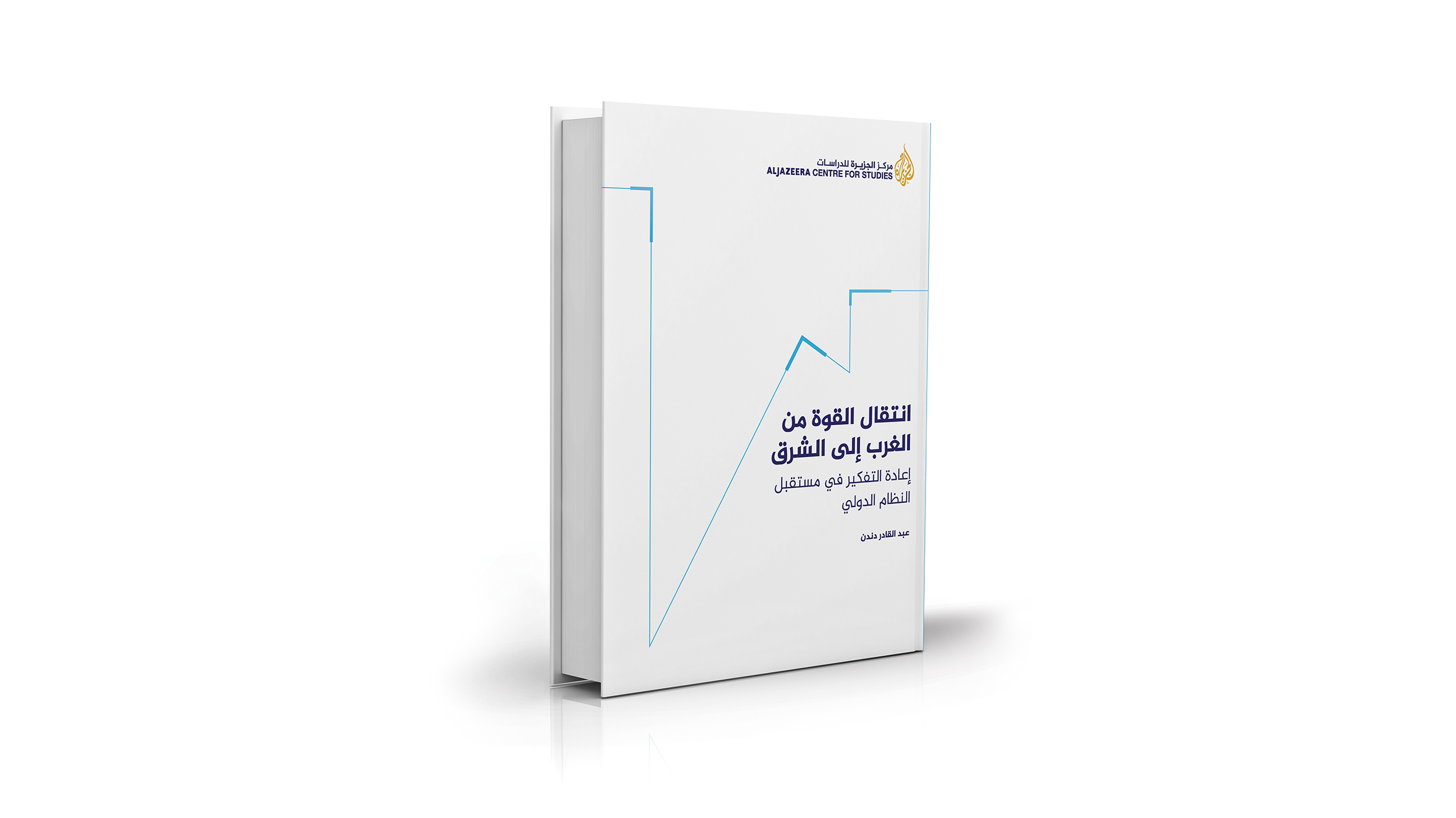
Al Jazeera Centre for Studies has published a new book entitled Intiqal al-Quwwa min al-Gharb ila ash-Sharq: I’adat at-Tafkir fi Mustaqbal an-Nidham ad-Dawli (Arabic: The Shift of Power from West to East: Rethinking the Future of the International System) by Abdelkader Dendenne, Professor of Political Science at the University of Badji Mukhtar in Annaba, Algeria.
The book introduces the philosophy and foundations of the “power shift” theory and how it is employed to explain and interpret the dynamics of the ongoing power shift in the international system. It seeks to clarify the main reasons, drivers and influential forces behind the shift.
Moreover, the book examines the most significant indicators and signs of the decline of the West and the rise of the East in the context of the shift of power centres on the international stage. It analyses the initiatives and new structures introduced by Eastern powers, led by China and Russia, to achieve their desire to alter the structure of the international system. The book also attempts to identify the main obstacles and challenges facing this endeavour.
The significance of the book stems from the importance of comprehending developments at the level of the international system and their implications for the present and future of the Arab region. In this regard, Dendenne states that the world is likely to witness significant shifts in power dynamics at a higher level, with repercussions on regions and smaller geographic areas, particularly the Arab region. Therefore, the necessity of this scholarly work is evident in the pursuit of understanding the great upheaval that the world may experience if the balance of power shifts in favour of Eastern powers. This involves adapting and positioning the Arab region appropriately to benefit from the new status quo, establishing a network of alternative relationships and alliances that take the interests of the people and countries in the region into account, and reducing the potential shock and confusion that they may face, given their inherent vulnerability to regional and global changes.
In the conclusion of his book, Dendenne emphasises that the process of the current global power shift depends on several factors, such as the clarity of vision of the powers leading the effort to change the structure of the international system and their ability to reconcile perspectives; overcome differences; and balance their bilateral relations on one hand, and their relations with the United States and the West on the other.
He also points out that the traditional Western powers that have dominated the international system since the era of the Industrial Revolution, through the age of European centrality up to the current American leadership and Western centrality, cannot easily relinquish their leadership of the international system. This opens the door to complex calculations and conflicting expectations regarding the nature of the transition that will take place; and whether it will occur in a peaceful manner – with settlements and concessions to preserve global stability - or a conflictual manner that plunges the world into a vortex of new international chaos, potentially resulting in increased militarisation and collision possibilities.
The book is available in Arabic here.